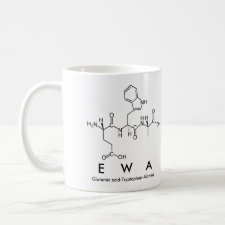
Authors: Ncube S, Tavengwa N, Soqaka A, Cukrowska E, Chimuka L
Article Title: Development of a single format membrane assisted solvent extraction-molecularly imprinted polymer technique for extraction of polycyclic aromatic hydrocarbons in wastewater followed by gas chromatography mass spectrometry determination.
Publication date: 2018
Journal: Journal of Chromatography A
Volume: 1569
Page numbers: 36-43.
DOI: 10.1016/j.chroma.2018.07.061
Alternative URL: http://www.sciencedirect.com/science/article/pii/S0021967318309452
Abstract: A technique that combines membrane assisted solvent extraction and molecularly imprinted polymer into a single step format has been successfully developed and evaluated for the extraction of the 16 US-EPA priority polycyclic aromatic hydrocarbons in wastewater samples followed by determination using gas chromatography coupled with time of flight mass spectrometry. The technique involves placing the polymer particles into a hydrophobic polypropylene membrane bag which is in contact with an aqueous donor phase. The technique was optimized for various parameters that include presence of an organic modifier in the donor phase, stirring rate and extraction time. The optimum conditions were 25% of dimethyl sulfoxide as an organic modifier and stirring at 1000 rpm for 120 min. The limits of detection using the technique were in the 0.01-0.45 ng mL-1 range. Linearity values determined in the 10-1 000 ng mL-1 calibration range were all above 0.9972. Extraction efficiencies of the sixt analytes calculated as averages for three spiking concentrations ranged from 62.8 to 96.8% (RSD = 3.1-12.3%). The optimized method was tested for the extraction of polycyclic aromatic hydrocarbons in wastewater samples in the presence of surrogate standards. The developed method showed great reproducibility with inter day repeatability values ranging from 0.6 to 24.9%. The analytes were quantified in the nanogram level showing that the developed technique is a viable alternative in the analysis of trace organic compounds in complex aqueous samples
Template and target information: polycyclic aromatic hydrocarbons
Author keywords: Membrane assisted solvent extraction, molecularly imprinted polymer, Wastewater, polycyclic aromatic hydrocarbon



Join the Society for Molecular Imprinting

New items RSS feed
Sign-up for e-mail updates:
Choose between receiving an occasional newsletter or more frequent e-mail alerts.
Click here to go to the sign-up page.
Is your name elemental or peptidic? Enter your name and find out by clicking either of the buttons below!
Other products you may like:
 MIPdatabase
MIPdatabase









